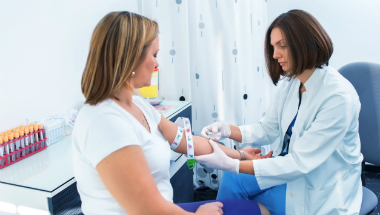Information for the public
Lyme disease: the care you should expect
Lyme disease is caused by a bacterial infection, which is spread by a bite from an infected tick. Ticks can be found in many woodland and grassy areas but only a small number carry the bacteria that causes Lyme disease. Around 2,000 to 3,000 people are thought to be diagnosed each year in England and Wales. Lyme disease often causes flu-like symptoms to start with and some people develop an expanding red rash. It can lead to other symptoms, like joint swelling and pain, nerve problems (including pain or numbness), trouble with memory and concentration, and heart problems. Symptoms can be more severe and long-lasting if treatment is delayed, but because Lyme disease can look like so many other conditions it’s sometimes hard to diagnose.
We want this guideline to make a difference to people with Lyme disease by making sure:
- people are treated for it without waiting for tests if they have the rash that shows a bite from an infected tick
- doctors know when to suspect Lyme disease – even when people have no rash or were unaware of a tick bite
- people who need more tests or specialist care are seen as soon as possible.
Making decisions together
Decisions about treatment and care are best when they are made together. Your healthcare professionals should give you clear information, talk with you about your options and listen carefully to your views and concerns.
They should also explain:
- how Lyme disease is diagnosed because there is no single test for it
- that your symptoms may continue after treatment but should get better over time
- that they can help you get support from social services, or arrange a gradual return to work or school if you have severe or long-lasting symptoms.
If you can’t understand the information you are given, tell your healthcare professional.
Read more about making decisions about your care.
In the news
Read NICE news about how this guideline will help.
New advice will help doctors spot and treat Lyme disease early, says NICE

Where can I find out more?
NHS Choices has more information about Lyme disease.
The organisations below can give you more advice and support.
- Caudwell LymeCo, 07342 882111
- Lyme Disease Action
NICE is not responsible for the content of these websites.
To share an experience of care you have received, contact your local Healthwatch.
We wrote this guideline with people who have been affected by Lyme disease and staff who treat and support them. All the decisions are based on the best research available.
ISBN: 978-1-4731-2921-4
This page was last updated: